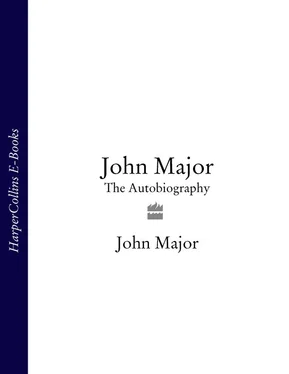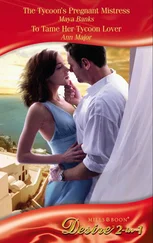Then came the miners’ strike over a pay claim that would have given some miners up to a 50 per cent rise. The National Coal Board had offered 13 per cent, which was rejected, and an overtime ban began. The miners were led by Joe Gormley, a traditional Labour figure, but not a militant. His interest was in the miners’ well-being and not in attacking the Conservative government. Other miners’ leaders, though, such as Mick McGahey and Arthur Scargill, did see the chance of confrontation and bringing down the government.
The strike worsened. Implacable positions were taken and Ted Heath was forced into a box. Many Conservatives, mostly but not exclusively on the right, wanted to ‘take on’ the miners. ‘Who governs the country?’ they asked. Others recognised the sympathy and respect in which the miners were widely held by the British people. Some of their leaders might be militant, but the British sense of fair play knew that the miners did a job that few would care to do. The public admired the miners and liked the common sense they often heard from rank-and-file NUM members. But they did not like the militants.
Crisis beckoned, and the three-day week was imposed from 31 December 1973 as stocks of coal fell. Pressure mounted. Ted Heath had a dilemma. If he negotiated a settlement because of the economic effect the strike was having, he would be accused of weakness, especially from within the Conservative Party. If the strikes continued the economy would suffer, and gradually public opinion would turn against the government. The third choice, a huge gamble, was a general election to reinforce the government’s authority. Little thought was given to what would happen if the government was re-elected, but the strike itself went on.
Ted Heath went for broke and called the election on the theme of ‘Who Governs Britain?’ At the time I was delighted, and the early opinion polls were favourable, as was reaction on the doorstep, even in St Pancras North. But a one-issue election is dangerous. Midway through the campaign complex evidence on miners’ pay suggested that they were earning even less than the NUM had declared. Harold Wilson claimed an election had been called over an ‘arithmetical error’. Sympathy swelled for the miners.
The public mood changed. Unhappy Tories voted Liberal, and Labour crept home as the largest party. Ted Heath was out and Harold Wilson, to his surprise and everyone else’s, was back in Downing Street, at the head of a minority administration. One bright spot was that George Young was elected to Parliament with a small majority at Ealing, Acton. In St Pancras North Jock Stallard was alarmed by the strength of support I had in some streets, but overall he won comfortably.
A second general election later that year was inevitable. The St Pancras North Conservative Association generously told me I could seek a better seat with their blessing, but could recontest St Pancras if I failed to find one. I did not try very hard, although I was shortlisted for marginal Paddington, where I was narrowly defeated by Mark Wolfson, later MP for Sevenoaks. I also applied for Portsmouth North, where I was assailed with questions about flogging and hanging, which the questioner favoured – whether sequentially or alternatively I wasn’t sure – and I didn’t. That was the end of Portsmouth North, who picked a well-known businessman, John Ward, who would later become my PPS when I was prime minister.
After this setback, I decided to stay in St Pancras North, and contested it again in the second general election of the year in October. The constituency was of little interest nationally, and the only publicity we received was for my new agent, Sue Winter, the youngest in the country and very pretty. It made no difference. Again I lost, after a rather bitter campaign and an unpleasant count, with jeering Labour activists. Jock Stallard’s majority increased. Labour gained seats nationally, and had a very narrow overall majority of only three seats. Soon they would need to rely on Liberal support to stay in government.
By now Norma and I had sold our flat in Primrose Court and bought a modern end-of-terrace house, West Oak, in The Avenue, Beckenham. Elizabeth was growing, and we needed more space. West Oak was a small estate in lovely wooded grounds, full of mostly young married couples, and we were very happy there. Among our neighbours were David Rodgers, a former aide to Iain Macleod, and his wife Erica, who had been National Vice Chairman of the Young Conservatives.
Norma was pregnant again, and James was born in January 1975. I was again present at the birth, and he arrived much more speedily and with much less drama than Elizabeth. We had no difficulty over his name: he was James, if a boy, from long before he was born. He was a fit, contented baby from the very start.
Politics moved on, and in February 1975 Margaret Thatcher defeated Ted Heath to become leader of the Conservative Party. I had never met her, and little guessed how much our paths would cross in the future.
No one expected another early general election – public and politicians were battle-weary – but as seats were advertised or fell vacant I applied for them. I received rejection after rejection without interview, and was puzzled and despondent. It was Jean Lucas, by then the agent for Putney, who solved the puzzle after I applied for the vacant candidacy there. She telephoned and asked whether my biography needed to be jazzed up, and then noticed that the biography sent to Putney by Central Office was not mine. She made enquiries. The answer was comical. There were two John Majors. One, me, on the approved candidates list for Parliament, and the other on the list of would-be candidates for the GLC. Someone at Central Office had transposed the biographies, and was sending out my namesake’s – which was pretty thin – to all the seats for which I had applied. Unsurprisingly, I had not been invited for interview.
After Jean’s intervention I was invited to Putney, interviewed and shortlisted. I was led to believe I was the front-runner and likely to be adopted. But, as their selection process rumbled on, a by-election was called at Conservative-held Carshalton, and I was interviewed and reached the last eight. I withdrew from Putney, and an unknown barrister was chosen: his name was David Mellor. ‘He is very clever and one day will make a real name for himself,’ predicted Jean Lucas.
At Carshalton I was preceded for interview by a confident young man carrying a briefcase with the initials ‘N.F.’ prominently displayed. I asked who he was, and was told his name was Nigel Forman. I had a premonition that he would be selected; he was, and comfortably won the ensuing by-election.
I continued to apply for a seat. Sevenoaks did not interview me. At Ruislip Northwood I disagreed sharply with a member of the selection committee over housing and was not invited for further interview. At Dorset South I reached the second round of interviews and was waiting with the others for my ordeal when I saw the selection committee rise respectfully as a well-built young man with dark hair entered the room. One of the other candidates scowled: ‘That’s Lord Cranborne – he owns the constituency.’ That was not quite true, although he certainly owned a lot of land. He was selected, and twenty years later I was to appoint him to my Cabinet as leader of the Lords, and he was to run a crucial campaign for me to save my premiership. Self-evidently, Robert had great ability, so perhaps owning the constituency didn’t matter.
After the two general elections I contested, Standard Bank had realised I was set on a political career, but remained supportive. Roy Mortimer, one of the senior executives, and Peter Graham, the managing director, were unfailingly helpful, even though they knew the bank was second in my working affections. By 1976, Tony Barber, who had been Chancellor of the Exchequer in Ted Heath’s government, was chairman of the bank, and took me with him as his personal assistant to the International Monetary Fund Conference in Manila. That was the year sterling hit trouble and Denis Healey had to turn back from Heathrow Airport to deal with the crisis.
Читать дальше












